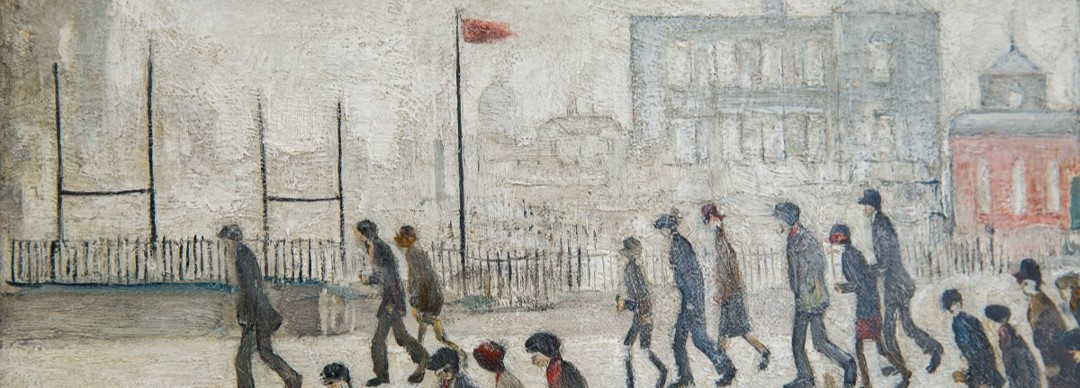The Army and Navy rugby league teams served up a thrilling
Challenge Cup encounter on Saturday, in a match full of significance.
 |
[Image credit: The RFL] |
Those who turned in to The Sportsman’s covering of the Army v Navy Challenge Cup tie on Saturday witnessed a grandstand finished as the
Navy – 10-0 down mid-way through the second half – turned things around to post
a 14-10 extra-time victory.
The game as a whole was scrappy at times with the occasional
flash of ill-discipline. Yet there were also moments of true rugby league
brilliance, such as Dec Baines’ probing run which set up Kev Brown for the
Army’s second try. Joey Sugden’s golden-point winner for the visitors was also
the result of a smart bit of play by Navy hooker James Tilley.
The match was just one of several over the long weekend –
Lock Lane’s astonishing victory over Oldham, Batley’s comeback win at home to
Halifax, and Featherstone’s defeat of York in Premier Sports’ Monday night game
– that show that high-quality rugby league isn’t the exclusive preserve of
Super League.
* * *
Apart from being an entertaining encounter, the Army v Navy
match was of historic significance, the first time that these two sides have
met in the Challenge Cup.
The occasion was even more poignant given that until 1994
rugby league was actually banned in the armed forces – an example of rugby
union’s irrational bigotry towards league that survived into the modern era.
Rugby league is doubtless largely responsible for its own
failures over the years, and we would do well not to always have a chip on our
shoulder. But it’s worth remembering the obstacles that the game has faced in
growing and developing, and celebrating a milestone such as this marking when
one of those obstacles has been overcome.
* * *
On the topic of rugby league growth and development, it’s
well worth tuning in to last week’s BBC 5 Live Rugby League Podcast with Dave
Woods in conversation with Rochdale Hornets chairman Andy Mazey and Midlands
Hurricanes CEO Alan Robinson.
Robinson spearheaded the re-branding of Coventry Bears – now
based in Solihull near Birmingham – as the Midlands Hurricanes in order to
appeal to a larger audience.
The discussion had even greater resonance given that Mazey,
when chairman of Swinton Lions, wanted to re-brand the club as Manchester Lions
for precisely the same reason. Mazey’s argument is that clubs must be willing
to adapt and change in order to progress, gain a new audience, and grow the
game as a whole.
Interestingly though the Forty20 podcast that same week
featured Damien Ridpath, the present Swinton Lions development officer, making
the opposite case. No less committed to reaching out across Greater Manchester,
Ridpath makes a convincing argument that re-branding the Lions as “Manchester”
would be a backward step.
To do so would jettison the club’s 156-year identity, give
the impression that the Lions were some new franchise with no roots in the
region (such as a recently founded basketball or ice hockey club), and invite
unflattering comparisons with Manchester City and Manchester Utd.
Which view makes more sense? You be the judge.


Comments
Post a Comment